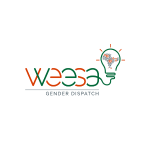

Women’s Economic Empowerment in South Asia (Hosted by SAR GIL)
Tags
- Gender-based Violence (17)
- Water (17)
- Measurement (10)
- Leadership (19)
- Afghanistan (4)
- Social Norms (9)
- Infographics (9)
- Migration (14)
- Transportation (12)
- Green Transition (7)
- Brief (2)
- Empowerment (5)
- Toolkits (13)
- Pakistan (23)
- Energy (26)
- Jobs (43)
- Infrastructure (20)
- Self-help Groups (12)
- Agriculture (12)
- Social Protection (12)
- Digital Inclusion (19)
- Nepal (12)
- Private Sector (27)
- Care Economy (10)
- Bhutan (2)
- Sri Lanka (6)
- Blogs & Articles (34)
- Podcast (33)
- Reports (70)
- India (30)
- Assets and Resources (14)
- Bangladesh (24)
- Maldives (1)
- Climate Change (32)
- Entrepreneurship (31)
- Video (2)
- Financial Inclusion (24)
- Policies and Legislation (14)
- Male Engagement (7)
- Gender Budgeting (7)
- Education and Skills (23)
Archives
- 2023 September (55)
- 2023 October (30)
- 2023 November (20)
- 2023 December (1)
- 2024 January (14)
- 2024 February (14)
- 2024 March (11)
- 2024 April (13)
- 2024 May (93)
- 2024 June (2)
- 2024 July (12)
- 2024 August (16)
- 2024 September (12)
- 2024 October (16)
- 2024 November (27)
- 2024 December (5)
- 2025 January (12)
- 2025 February (18)
- 2025 March (19)
- 2025 April (8)
- 2025 May (12)
- 2025 June (2)

Documents
The World's Most Gender-Equal Countries (2023)
The surge in data collection on gender gaps means we can compare different countries on how they rank in gender equality, but what is it like to actually live in
Empowered Women, Empowered Economies: Financing for Gender Equality in Latin America and the Caribbean (2023)
Accompanying a World Bank brief on the same topic, this blog gives an overview of gender budgeting – the use of public financial management systems to promote women’s empowerment and
Women’s Power Index: Find Out Where Women Lead—and Why It Matters (2023)
Devised by the Council of Foreign Relations to track progress toward gender parity in political participation, the Women’s Power Index ranks 193 UN member states. The interactive presentation includes a
Empowering Women, Protecting the Earth (2023)
In the wake of the 2023 United Nations Climate Change Conference (COP28), it is important to not forget the disproportionate impact that the climate crisis is having on women and
Unlocking Opportunities for Women and Business: A Toolkit of Actions and Strategies for Oil, Gas, and Mining Companies (2021)
Working equitably with men and women – as managers, employees, and suppliers, and in host communities – is key to achieving a sustainable, responsible, and profitable business. Offering step-by-step guidance
Women’s Employment in Energy Sector Utilities Toolkit (2023)
A “one-stop shop” for advice and resources on how to bolster women’s employment in energy utilities, this toolkit by the World Bank’s Energy Sector Management Assistance Program (ESMAP) addresses barriers
How to Ensure Better Outcomes for Women in Resettlement: A Toolkit (2019)
Development-induced resettlement often disproportionately affects women. Based on an assessment of the social readiness of resettlement programs in Vietnam funded by the World Bank, this go-to toolkit outlines potential gender
Including Women and Girls with Disabilities in World Bank Operations: Toolkit (2023)
Unemployment rates of women and girls with disabilities continue to lag behind those of men and women without disabilities – a huge setback given that one in every five women
Integrating Gender in Land Projects: A Toolkit (2022)
Land remains probably the most important asset for the majority of South Asian women, notwithstanding the laws, customs, and norms that favor male inheritance. This toolkit provides a blueprint for
An Operational Approach to Enhancing Women’s and Girls’ Empowerment in World Bank Projects (2023)
While the number of projects that include empowerment as a development objective is growing, consensus on how to achieve this is hard to find. This note gives pragmatic suggestions for